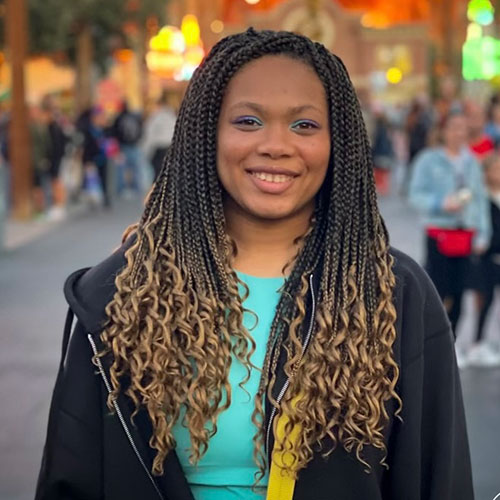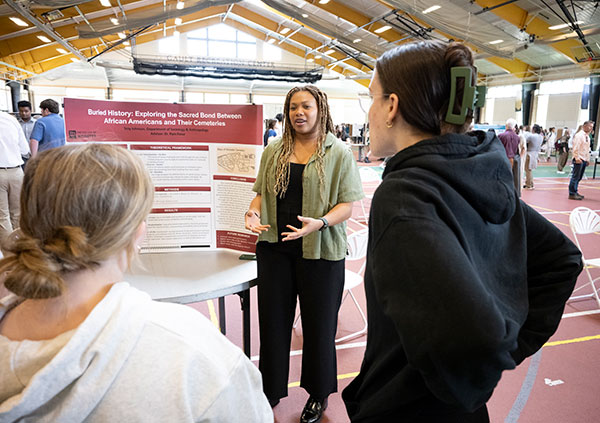
Anthropology major explores cultural heritage preservation of African Americans cemeteries

Troy Johnson ’24 grew up hearing stories from her grandparents about African American cemeteries and their importance beyond being burial sites, and her senior capstone project at The College of Wooster empowered her to explore their significance through scholarly research. For her Independent Study, the anthropology major and studio art minor investigated cemeteries that have become repositories for African American cultural heritage and identity despite centuries of loss, inequality, and adversity.
“African American communities have demonstrated remarkable resilience in reclaiming and preserving their ancestral connections,” Johnson said. “Through acts of remembrance, resistance, and renewal, these sacred spaces have been transformed into vibrant hubs of collective memory and cultural affirmation.”
With the guidance of mentor, Pam Frese, professor of sociology and anthropology, Johnson’s research included literature reviews of scholars whose work addressed the significance of African American cemeteries. Johnson, who played volleyball at the College, tied her study to the local community, visiting the Wooster Cemetery and working with members of the Second Baptist Church. She also assessed preservation efforts, and interviewed family members to understand the role that cemeteries play in the lives of the community.
As she uncovered the buried history of African American cemeteries, Johnson, who also completed the museum and archival studies pathway at Wooster, furthered her passion for cultural heritage. “It is imperative to continue honoring and amplifying the voices and experiences of African American communities in preserving their cemeteries,” she said.
Q: What excites you about your I.S.?
Johnson: I was drawn to the topic when I learned that many African American cemeteries have been neglected, taken away, or paved over, leaving nowhere for people to come to remember and celebrate their ancestors. This was a perfect time to learn more, inform others, and start a cultural discussion.
Q: How did Wooster prepare you for I.S.?
Johnson: Wooster gave me a well-rounded education that provided the basics for my I.S. process. Discussing related topics in classes, preparing for interviews, and learning how to probe and do research gave me the tools to do what I needed to do.
Q: How did your I.S. mentor support you as you completed your project?
Johnson: From the initial stages of selecting my topic through the refining process, Dr. Pam Frese provided expertise and unwavering encouragement. She created a supportive environment to discuss challenges and brainstorm solutions. Her support enhanced the quality of my I.S. and contributed to my overall development as a researcher.

Johnson had the opportunity to share her research with the College community at the Senior Research Symposium.
Posted in Independent Study on June 26, 2024.
Related Posts
Related Areas of Study
Museum Studies
The Museum Studies minor requires six courses, with one required course and the remaining to be selected from experiential and theory courses. Alongside MUST […]
MinorArt - Studio Art
Studio space, small classes with talented instructors, and the strong foundation that comes with a liberal arts education.
Major MinorMuseum & Archival Studies
Explore the diverse traditions of collection, curation, research, display, and preservation and plan your career
PathwayAnthropology
Use problem-solving and research skills to explore and understand communities and cultures in every part of the world.
Major Minor

